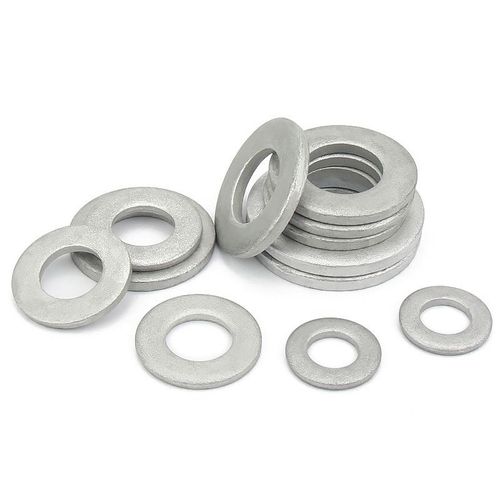Comparison of Crush Washers and Flat Washers from Leading Manufacturers
Understanding the Differences Between Crush Washers and Flat Washers A Focus on Manufacturers
When it comes to choosing the right type of washer for your mechanical and plumbing applications, understanding the differences between crush washers and flat washers is essential. Manufacturers around the world produce these essential components, each tailored to specific uses and applications. In this article, we’ll explore the characteristics, applications, and manufacturing considerations of crush washers and flat washers, allowing you to make informed decisions in your projects.
Definitions and Characteristics
Crush Washers Also known as sealing washers, crush washers are typically made from soft metals such as copper, aluminum, or rubber. Their primary function is to create a seal between two surfaces, preventing leaks of fluids or gases. They are designed to deform under pressure, which enables them to fill gaps and irregularities at the joint surface. This deformation is crucial in applications where a tight seal is necessary, such as in automotive oil pans, hydraulic systems, and gas fittings.
Flat Washers In contrast, flat washers are usually made from harder materials such as steel or stainless steel, though plastic and rubber variants are also available. Flat washers serve two main purposes they distribute the load of a threaded fastener, such as a bolt or nut, and they provide a smooth surface that prevents damage to the connected parts. While they can help minimize wear and reduce friction, flat washers are not designed to create a seal; thus, they are used in applications where sealing is not a primary concern.
Applications
Both types of washers have specific applications that play to their strengths
- Crush Washers These are often used in automotive and plumbing applications. In vehicles, they are commonly found in oil and fuel applications, where preventing leaks is critical. Their ability to deform under pressure makes them ideal for high-temperature and high-pressure situations, such as those found in hydraulic systems and gas tanks.
- Flat Washers These are frequently employed in construction and machinery, where they are used beneath nuts and bolts to distribute load and reduce the risk of wear on surfaces
. Flat washers are integral in manufacturing, assembling equipment, and applications where the fastening components must be secured while enabling easier disassembly for maintenance or repairs.crush washer vs flat washer manufacturer

Manufacturing Considerations
When it comes to manufacturing washers, varying methods are used depending on the type and material
- Crush Washer Manufacturing The production of crush washers often involves the use of softer metals or rubber, which can be easily extruded or stamped into shape. Quality control focuses on the material’s ability to deform uniformly, ensuring that a proper seal is achieved without leakage. Manufacturers often conduct rigorous testing for permeability and pressure endurance to ensure the washers meet the required specifications.
- Flat Washer Manufacturing Flat washers are typically manufactured through stamping processes from steel sheets or coils. Quality involves controlling thickness, diameter, and surface finish, as these factors impact the load distribution and wear characteristics. Manufacturers might also treat steel flat washers with coatings like zinc plating for corrosion resistance, especially when used in outdoor or moisture-prone environments.
Choosing the Right Washer
When selecting between crush washers and flat washers, consider the application at hand. If a seal is required to prevent leaks, opt for crush washers. If the need is for load distribution and surface protection, flat washers are the right choice. Also, consider the manufacturing quality; reputable manufacturers will provide washers that meet industry standards and ensure longevity in performance.
Conclusion
In summary, understanding the differences between crush washers and flat washers is key in making informed decisions for your projects. By recognizing their unique characteristics, applications, and manufacturing processes, you can choose the right washer to ensure efficiency, safety, and durability in your mechanical and plumbing systems. Always select washers from reputable manufacturers to guarantee quality and reliability in your work.
-
Top Choices for Plasterboard FixingNewsDec.26,2024
-
The Versatility of Specialty WashersNewsDec.26,2024
-
Secure Your ProjectsNewsDec.26,2024
-
Essential Screws for Chipboard Flooring ProjectsNewsDec.26,2024
-
Choosing the Right Drywall ScrewsNewsDec.26,2024
-
Black Phosphate Screws for Superior PerformanceNewsDec.26,2024
-
The Versatile Choice of Nylon Flat Washers for Your NeedsNewsDec.18,2024










